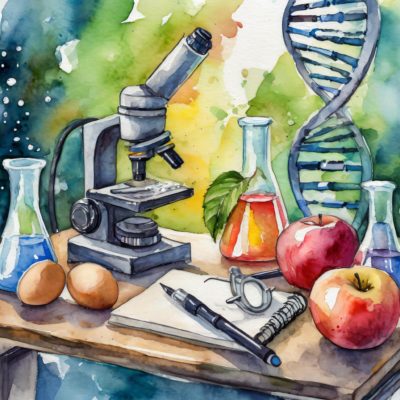March is National Nutrition Month, but at the UNC Nutrition Research Institute we celebrate Nutrition daily. In our world-class research center, we’re working to discover why we are nutritionally so different from one another. To do this, we recruit great scientific minds and use cutting-edge tools in genetics and metabolism.
Our scientists seek to understand nutrient metabolism and its relationship to human development and disease by employing several fields of science, including:
- Nutrigenetics
- Metabolomics
- Epigenetics
- Nutrigenomics
- Microbiomics
Nutrigenetics identifies the genetic blueprint that makes each of us respond uniquely to nutrition and what it means for our personal health. NRI scientists use this field to discover diet-gene interactions for cancer prevention and to investigate the interplay between nutritional and genetic factors influencing disease risk.
Metabolomics measures thousands of small molecules (metabolites) to better understand how nutrition affects our metabolism, performance, and health. This science assists NRI researchers in understanding the optimal level of nutrients an individual needs, which may depend on the person’s genetics, metabolism of nutrients, and lifestyle factors such as tobacco, drugs, and alcohol.
Epigenetics studies chemical marks on genes that turn them on or off and are often affected by nutrition early and for the rest of life. Some NRI researchers use epigenetics to focus on fetal alcohol spectrum disorder. NRI research has shown that dietary choline supplementation can reduce at least some of the cognitive and behavioral problems associated with FASD in human and animal models.
Nutrigenomics seeks to identify genetic susceptibility to diseases, effects of genetic variation on nutrient metabolism, and effects of nutrients on gene expression. From focusing on mechanisms linking choline status and neurodevelopment in health and disease states to understanding the role of vitamin folate in liver function and cancer, NRI investigators employ nutrigenomics to accomplish their research goals.
Microbiomics studies how each of the many microbe species in our gut affects our nutritional health in different ways and makes us respond uniquely to nutrition. Health behaviors have been associated with gut microbial features. And research at the NRI has shown it is possible that protective effects of diet and activity may, in part, operate through the gut microbiota.
At the UNC Nutrition Research Institute, we’re building a healthier tomorrow for you, your children, and future generations. Our goal is to replace general dietary guidance with more customized nutrition recommendations.Our advances in nutrition science are leading to successes in preventing or mitigating the negative effects of chronic diseases, aging and in improving human development, even prior to conception.
Celebrate National Nutrition Month by staying informed on our research by following us on social media and subscribing to our emails.

